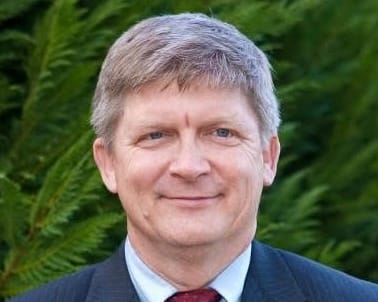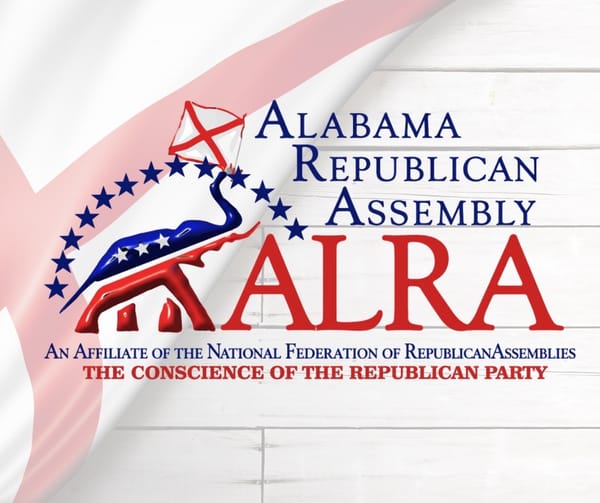State Senator Greg Albritton Talks Gambling Bill
Will likely introduce a gambling bill during the second half of this Legislative Session

Gambling legislation has been an ongoing topic of contention for years, and State Senator Greg Albritton (R-22) has been at its forefront in several recent legislative sessions. Albritton, whose district includes parts of Baldwin, Escambia, Mobile and Washington Counties, has been working on a gambling bill for this session which he may drop this week.
Albritton’s bill will likely:
- establish a 24% tax on net revenues from games of chance and sports betting
- put a $2,500 privilege tax on every electronic game at every establishment
- create an Alabama Gambling Commission (AGC) to oversee gaming within the state, including its members and duties
- create a Gambling Enforcement Division within the AGC to police gaming within the state
- allow for six Class II gambling sites in the state, in addition to the three on the porch creeks federally recognize properties. The six sites would be at the bingo halls in Green, Macon and Houston counties and the race tracks in Jefferson, Macon and Mobile counties
- create a state lottery, and the Alabama Lottery Corporation to oversee it
- create a Gaming Trust Fund and separate Alabama Lottery Trust Fund to receive all gaming-related revenue and fees
- allow sports betting “whether in person on the premises of the license establishment or through an individually branded sports wedge platform website, and through an associated mobile application, bearing the same brand name”
- allow traditional raffles or bingo for charity fundraising with required license and fee not to exceed $25
- require the state to enter into a compact with the Poarch Creek Indians
Albritton’s plan would put these proposals before the voters in a September special election, in the form of a constitutional amendment. As a constitutional amendment, it requires 21 members of the Senate’s 34 current members to vote in favor of the bill.
Senator Albritton spoke with ALPolitics.com about his bill and the gambling issue in general. During that conversation he not only discussed his reasons for the bill but acknowledged the difficulties the bill faces.
“There’s a lot of fatigue in this state about the ‘G-word,’ Albritton said. “There’s a lot of eye-rolling and hand-wringing and turning away. I’m speaking mostly of Legislators. They just don’t want to deal with it.”
“Gambling is already going on in this state. It’s happening on people’s phones in the halls of the State House, especially with March Madness going on. We have a moral obligation to grab control of this issue.”
When asked why many legislators didn’t want to deal with this issue, Albritton was very clear: “Fear. There’s the fear of being de-elected, the fear of what it will do. There’s also misunderstanding and ignorance of the issue, pressure from the Big Mules, and from their personal family members and others.”
“This is a volatile issue,” Albritton continued. “It requires guts to face it. When you run for office and get elected, you take on the responsibility of facing tough issues and how to solve them.”
When asked if his bill would allow typical movie-style casinos on every corner, Albritton emphatically denied this, saying “my bill specifically prevents that. It only allows (federally classified) Class II gaming, not Class III. It’s only going to allow that which is occurring legally already. That's all it allows.”
“It identifies and puts into the constitutional amendment these sites, and locates them geographically. These are the same sites where they are located now. There’s no way a Class III site could go in under this law. Even the Poarch Creek sites that exist now wouldn’t be able to have Class III gaming without entering into a compact with the State.”
When asked if his bill addressed treatment of gambling addiction, he acknowledged it would, saying “yes, there are carve-outs for that.” He then went on say that several portions of his bill, including the treatment carve-outs, were largely copied and pasted from what other states have done.
Albritton did say that creating a bill by this copy/paste method wasn’t without risks. He used last year’s gambling bill as an example of a Frankenstein bill with too many pieces added into it. “That’s how you get a bad bill. That’s why I voted against it,” (referring to last year’s gambling bill).
Asked to summarize his bill, Albritton said, “My proposed bill does several things. Primarily, it’s designed to capture the gaming industry as it currently exists right now in Alabama. To catch it, also to cap it, to stop the growth and also to collect on it. We’re gonna tax it and we’re gonna tax it to a level where the state can benefit from these activities. And, we’re going to be able to resolve this issue and remove it, for some time yet. This will be continually coming up until we get this resolved.”
“My bill will also give us a means so that, coming into a time when the economy is slowing, it’s going to give us some assurance on revenue for the next 5 to 10 years that we can rely on without facing dire consequences on either side, ETF (Educational Trust Fund) or General Fund. It’s going to help Alabama and Alabamians to control this industry, and that’s what we’re trying to accomplish here,” Albritton concluded.
ALPolitics.com will be following this issue closely as it develops.
To learn more about federal Gaming Classifications under the 1988 Indian Gambling Regulatory Act, see HERE and HERE.




